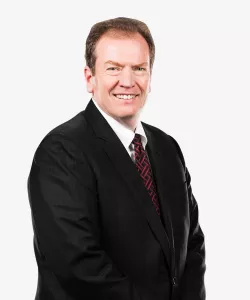Congress Weighs Federal Liability-Relief Legislation to Encourage Business Re-Openings
With the gradual lifting of stay-at-home orders and efforts to re-open the economy, business owners and employers are concerned that they may face a flood of lawsuits involving claims of unsafe practices brought by customers or employees who contract the coronavirus. In response, lawmakers are examining various proposals for liability protections to include in the next COVID-19 relief legislation.
“Liability reform will be one of the core controversies of the next COVID legislative negotiation,” said former Rep. Phil English of Arent Fox LLP. “As many small businesses risk closure, Congress faces the challenge of finding a balanced policy that relieves operators of unreasonable risk in an uncertain regulatory environment. A polarized Congress will have enormous difficulty shaping an acceptable middle ground on pandemic related liability, in already contentious legislative discussions.”
Views of Congressional Leadership
The GOP has indicated that liability protection for businesses is a top priority in the next round of legislation. Senate Majority Leader Mitch McConnell has been stressing the need for blanket immunity in the next bill since mid-April. “My red line going forward on this bill is we need to provide protection, litigation protection, for those who have been on the front lines,” the GOP leader told Fox News on April 28.
Under Senator McConnell’s proposal, all businesses and employers would be immune from all COVID-19 related litigation. Blanket immunity would provide businesses with the assurance and confidence needed to re-open, without the risk of costly litigation. At the same time, however, blanket immunity could leave employees unnecessarily exposed to the virus, particularly if the employer lacks the incentive to implement precautions such as increased cleaning and sanitization, wearing of face masks, or enforcement of social distancing.
Senator Lindsey Graham, the Chairman of the Senate Judiciary Committee, has proposed liability protections “where it makes sense, in a reasoned fashion” without “giving a pass to the bad actor.” Senator Graham emphasized that companies spending time and money to implement appropriate safety measures should be able to re-open with the assurance that they will not then have to contend with the additional cost of “getting sued.”
Senator John Cornyn has taken the lead on behalf of Senate Republicans and is drafting legislation that would protect businesses from coronavirus-related litigation if they comply with government guidelines. Notably, Senator Cornyn’s proposed legislation would allow businesses to choose which guidelines to implement, whether federal CDC or other federal, state, or local guidelines. Senator Cornyn said in an interview on June 10, “If you are in good faith following the guidelines of a governmental entity, whether it’s CDC, or your governor or your mayor, then that would be a safe harbor against and a bar to liability.” The Republican proposal, which is expected to be circulated in July, would apply retroactively to 2019 and would remain effective through 2024.
Democratic leaders, on the other hand, have indicated that they will vigorously oppose blanket immunity, and instead favor increased regulatory leadership and guidelines aimed at establishing mandatory protocols for workplace safety. “Well, we have no red lines, but the fact is the best protection for our workers and our employers is to follow very good OSHA mandatory guidelines, and we have that in our bill,” Speaker Nancy Pelosi said in an interview with CBS, referring to the Health and Economic Recovery Omnibus Emergency Solutions (HEROES) Act passed by the House in May. Senator McConnell described the HEROES Act as “exactly the wrong approach.”
However, some moderate Democrats have expressed a willingness to consider liability protections under appropriate circumstances. Senator Christopher Coons has suggested that responsible business could be protected from liability in exchange for adopting national safety guidelines. He stated, “The simplest and most powerful solution to liability protection is to have a science-based, enforceable standard for the protection of employees and customers.” He added, “I don’t support a path forward where we don’t offer clear regulatory guidance and don’t offer liability protection for workers.” Likewise, Senator Doug Jones indicated that he would support legislation that strikes “an appropriate balance.”
Judiciary Committee Hearing
The Senate Judiciary Committee held a hearing on May 12 on the issue of liability resulting from the pandemic, and witnesses and members alike debated the “correct” approach.
Kevin Smartt, the CEO of Kwik Check Convenience Stores, testified that despite best efforts to comply with shifting and changing public health guidelines from federal, state and local agencies — particularly in light of supply chain disruptions — and despite an unwillingness to sacrifice the health and safety of employees and customers in favor of economic considerations, he could not guarantee that no employee or customer would get sick. Smartt emphasized that essential businesses who have attempted to “do the right thing” should not be punished with unfair lawsuits, and advised that liability protections should be enacted with the following considerations:
- Protect essential businesses against liability;
- Tailor protections to apply to responsible businesses but not bad actors;
- Separate any questions of compensation for people who get sick from the question of whether and when businesses should be liable; and
- Limit the duration of liability protections, such that they apply only to the current crisis.
Providing the position of labor unions, Anthony Marc Perrone, the President of the United Food and Commercial Workers International Union (UFCW), testified on the importance of protecting the safety of workers in grocery, meatpacking, and meat processing in order to ensure the nation’s food supply. According to Perrone, UFCW estimated that 162 of its members had died of coronavirus, and 25,000 had contracted it or were exposed to it. Perrone noted in particular OSHA’s failure to issue enforceable COVID-19 specific guidelines. Perrone advocated for uniform, enforceable, and science-based standards to ensure worker safety and rejected the concept of immunity because it could send the message that worker safety is not the employer’s responsibility.
Offering a legal perspective, Georgetown Law School Professor David Vladeck argued that the current state of the law is sufficient to protect businesses from frivolous lawsuits because proving that an individual contracted COVID-19 as a result of a business’s practices is very difficult given how contagious the virus is and how it spreads. He also noted that federal legislation that displaced state liability laws would be unprecedented and likely unconstitutional. Professor Vladeck recommended to the Committee, “[t]he best way to ease potential liability risks is for our expert public health agencies to step up and issue science-based, specific guidelines on how to address the pandemic and re-open our economy safely.”
Associations and Organizations Weigh In
Several business groups, trade associations, and public institutions have also weighed in on the issue. On May 27, the Chamber of Commerce sent a letter to Congress on behalf of almost 200 businesses, non-profit organizations, and educational institutions advocating in favor of liability protections given that the “fear and uncertainty from boundless liability” deters businesses from re-opening and threatens the country’s economic recovery. Specifically, the Chamber of Commerce urged Congress to enact a temporary safe harbor permitting liability for “truly bad actors who engage in egregious misconduct” and protecting:
- “businesses, non-profit organizations, and educational institutions that work to follow applicable public health guidelines against COVID-19 exposure claims;”
- “healthcare workers and facilities providing critical COVID-19-related care and services;”
- “manufacturers, donors, distributors, and users of vaccines, therapeutics, medical devices, as well as PPE and other supplies (such as hand sanitizer and cleaning supplies) that are critical to the COVID-19 response;” and
- “public companies targeted by unfair and opportunistic COVID-19-related securities lawsuits.”
The American Council on Education (ACE) sent a similar letter to Congressional leadership on behalf of higher education associations and highlighted the unique and unprecedented challenges that colleges and universities face in determining how to resume full operations. Like the Chamber of Commerce, ACE advocates for temporary and targeted protections.
As COVID-related legislation is proposed, Arent Fox will continue to monitor developments impacting business and employer liability protections.
Contacts
- Related Practices

